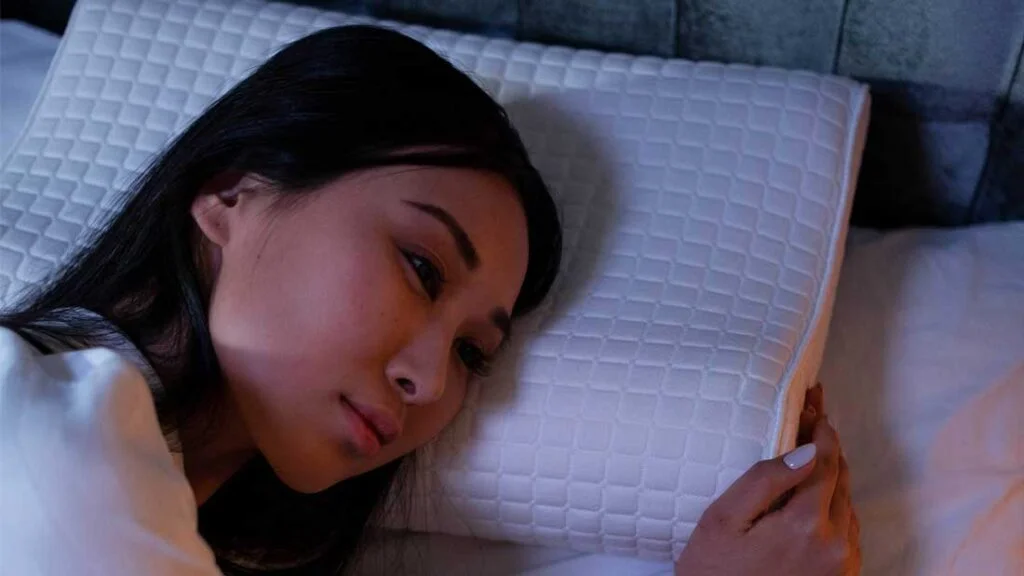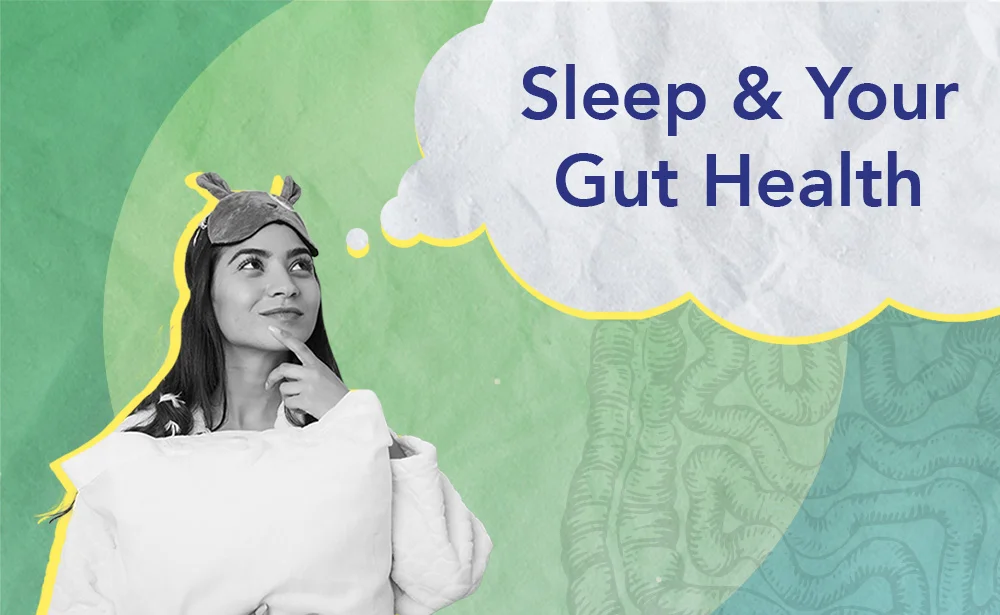
You might not think the quality of your sleep and the power of your thoughts could impact your gut, but a new study has shown that there is a correlation between poor sleep and irritable bowel syndrome (IBS) (1).
The 2024 study recently appeared in The American Journal of Gastroenterology. During the study, participants’ sleep was evaluated both subjectively and objectively through a wrist-worn actigraph. The results revealed that participants who felt they had slept poorly actually had an increase in IBS symptoms, compared to those who felt they had gotten good sleep.
“What they found is that the ‘perception’ of poor sleep resulted in an increase of IBS symptoms including mood disturbances the following day,” says Dr. Kenneth Brown, a gastroenterologist in Texas and the Founder and Chief Medical Officer of Atrantil. “The surprising thing in this study is that when patients did not complain of poor sleep, but the investigators noted it on the analysis, there was no significant increase in IBS symptoms reported by the participants. So basically, they concluded that poor subjective reporting of sleep was associated with next day GI and mood symptoms, but not vice versa.”
IBS is a chronic GI condition that often causes abdominal cramping, bloating, diarrhea, and/or constipation. A 2023 Cedars-Sinai study of 89,000 people across the United States found that it affects around 6 percent of people nationwide (2). Other studies have found links to the different triggers of IBS, including poor sleep, changes in gut microbes, and chronic stress (3). Turns out, it isn’t just what we eat causing those pesky symptoms.
“One possible mechanism is when we don’t get into a good sleep cycle, we lose the ability to ‘clean’ our digestive system,” explains Dr. Brown. “When we are in proper sleep cycles, we have something called the ‘housekeeper phenomenon,’ where a signal tells the stomach and small bowel to contract to help clean out any debris overnight. When this is disrupted due to poor sleep, bacteria can start to grow in the small bowel. When this happens, the bacteria break down the food we eat and create ‘IBS like symptoms’.”
Naturopathic physician Dr. Nadia Musavvir, ND, adds that poor sleep impacts hormones as well, potentially leading to IBS symptoms. “When cortisol levels increase, it leads to decreased blood flow to the gut which, in turn, decreases its function. This happens due to changes in the microbiome, stomach acid, and pancreatic enzyme release. As a result of these changes, you may experience more bloating, indigestion, and overall discomfort.” She adds that eating late can impact our circadian rhythms, and disrupt the quality of sleep and digestive function, increasing IBS symptoms and other issues.
In addition to GI symptoms, people who suffer from IBS have also been found to have sleep disorders, including insomnia or wakefulness, depending on the severity of their IBS symptoms. It makes sense — heading to the bathroom all night, for example, sure doesn’t make for great rest.
“The intriguing finding is that 82 percent of participants screened positive for a sleep disorder,” says Dr. Brown. “So, of the 80 people with a diagnosis of IBS, 66 of them were diagnosed with a sleep disorder. So this brings us back to the start where there really does appear to be a correlation with IBS and sleep. The question to be answered is how?”
While additional research is needed to establish a clearer understanding of the correlation between our gut and brain relationship, the study serves as a great reminder that quality sleep really is a driving force to our overall health.

Could Sleeping On Your Left Side Actually Improve Your Health? Doctors’ Answers May Surprise You

The Connection Between Sleep and Gut Health

Research Shows 2 in 3 People Don’t See the Doctor Unless Something Feels “Very Wrong” — This Can Wreak Havoc For Sleep Problems

Sleep and Metabolism: What You Need to Know
Sources
1. Topan, Rabia; Vork, Lisa; Fitzke, Heather; Pandya, Shraya; Keszthelyi, Daniel, PhD2; Cornelis, Jan; Ellis, Jason; Van Oudenhove, Lukas; Van Den Houte, Maaike P; Aziz, Qasim. “Poor Subjective Sleep Quality Predicts Symptoms in Irritable Bowel Syndrome Using the Experience Sampling Method”; The American Journal of Gastroenterology 119(1):p 155-164, January 2024. | DOI: 10.14309/ajg.0000000000002510
2. Almario, Christopher V.; Sharabi, Eden; Chey, William D.; Lauzon, Marie; Higgins, Carolyn S.; Spiegel, Brennan M.R.; “Prevalence and Burden of Illness of Rome IV Irritable Bowel Syndrome in the United States: Results From a Nationwide Cross-Sectional Study,” Gastroenterology Journal; December 6, 2023.
3. Zejnelagic, J., Ohlsson, B. Chronic stress and poor sleeping habits are associated with self-reported IBS and poor psychological well-being in the general population. BMC Res Notes 14, 280 (2021). https://doi.org/10.1186/s13104-021-05688-4
Brown, Kenneth. Author interview. January 2024.
Musavvir, Nadia. Author interview. January 2024.

























